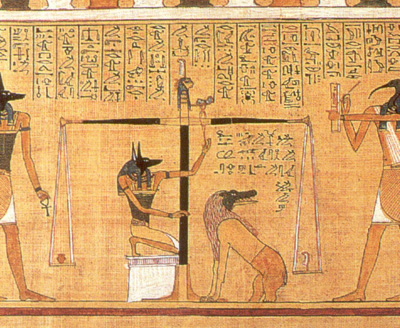The History of Weighing Scales
 The art of measurement is surely one of the practices which has set the human race aside from the animals and given us a basis for understanding how the world around us works, and how we can make it work for us.
The art of measurement is surely one of the practices which has set the human race aside from the animals and given us a basis for understanding how the world around us works, and how we can make it work for us.
It is probable the earliest form of measurement revolved around weight. For early civilisations, the means to accurately weigh everything from crops to cloth made a difference to survival. Early trading communities perfected the first weighing scales to get the best barter for their goods.
Examples of scales dating back to around 2000 BC have been uncovered in Pakistan and Egypt and are still recognisable today; a simple, if effective, system which relied on balancing goods – especially metals – with known weights of stone. Although largely practical, these early civilisations also placed a spiritual significance on balance and the Egyptians are known to have pictorialized their Gods using balance scales to determine fate.
By the time the Romans invaded Britain, there was perhaps a more focused practice associated with weighing scales with stone weights having been replaced by more accurate metal weights and a system of measurement imposed to avoid cheating on the part of merchants. The practices common at the time and the systems of measurement were the forerunners of today’s commodities market and set the wheels of commerce and industry in motion.
Abuses of this system were commonplace as each trader would carry his own weights and their accuracy could not be certain. This ultimately led to the need for a more accurate system which was not to occur until the 17th century with the invention of the spring scale.
Rather than a system of equilibrium, the spring scale relied on the effects of gravity to calculate weight as defined in Hooke’s Law which determines the displacement of force on the spring. Spring scales were less open to abuse than traditional balance scales as the constant was scientifically defined and led to spring scales becoming the most commonly used form of commercial and domestic scale from bathrooms to factories and kitchens to supermarkets.
The greatest need for accurate weight measurement was perhaps defined during the industrial revolution where great strides were made not only in manufacturing and production but also in science and it was in the field of science that the greatest and most recent advances have been made.
The development of finer and more precise electronics has seen a shift from generalised weight calculation to the ability to measure weight down to molecular level, paving the way for some of the 20th century’s greatest discoveries and even the exploration of space.
The history of weighing scales has been central to the understanding and exploitation of our environment and the range of uses from the baker making the perfect loaf of bread, to the jeweller measuring a diamond, to the astrophysicist calculating how much fuel will return an explorer home safely, means a huge market in scales exemplified by companies such as Our Weigh Ltd.
From humble beginnings to grand designs, who knows where the weighing scale will take us next?
